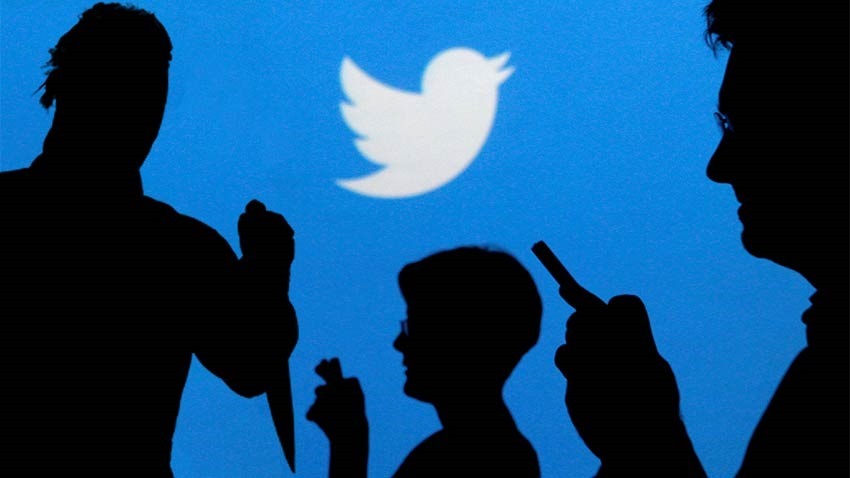
Yesterday, Twitter boss Jack Dorsey announced that the platform would be banning all political advertising on Twitter from November. It’s an interesting, curious but mostly welcome move in an age where misinformation on social media is used to sway voters.
“We’ve made the decision to stop all political advertising on Twitter globally. We believe political message reach should be earned, not bought,” Dorsey said on Twitter.
“A political message earns reach when people decide to follow an account or retweet. Paying for reach removes that decision, forcing highly optimized and targeted political messages on people. We believe this decision should not be compromised by money.
While internet advertising is incredibly powerful and very effective for commercial advertisers, that power brings significant risks to politics, where it can be used to influence votes to affect the lives of millions.
Internet political ads present entirely new challenges to civic discourse: machine learning-based optimization of messaging and micro-targeting, unchecked misleading information, and deep fakes. All at increasing velocity, sophistication, and overwhelming scale.
These challenges will affect ALL internet communication, not just political ads. Best to focus our efforts on the root problems, without the additional burden and complexity taking money brings. Trying to fix both means fixing neither well, and harms our credibility.”
Taking a few shots directly at Facebook, Dorsey continues:
“For instance, it‘s not credible for us to say: “We’re working hard to stop people from gaming our systems to spread misleading info, buuut if someone pays us to target and force people to see their political ad…well…they can say whatever they want! ”
We considered stopping only candidate ads, but issue ads present a way to circumvent. Additionally, it isn’t fair for everyone but candidates to buy ads for issues they want to push. So we’re stopping these too.
We’re well aware we‘re a small part of a much larger political advertising ecosystem. Some might argue our actions today could favor incumbents. But we have witnessed many social movements reach massive scale without any political advertising. I trust this will only grow.
In addition, we need more forward-looking political ad regulation (very difficult to do). Ad transparency requirements are progress, but not enough. The internet provides entirely new capabilities, and regulators need to think past the present day to ensure a level playing field.”
Lastly, Dorsey says this isn’t a “free speech” issue, and that it’s rather about paid reach.
“This isn’t about free expression. This is about paying for reach. And paying to increase the reach of political speech has significant ramifications that today’s democratic infrastructure may not be prepared to handle. It’s worth stepping back in order to address.”
That’s a nice move from Twitter, but it’s one I’d have liked to see years ago – before Brexit, before the current, exacerbated “Us vs them” that’s taken hold in US politics. For that, platforms like Twitter and to a much larger extent, Facebook, are definitely part of the problem. Facebook, however, will continue to run political ads. In fact, Facebook boss Mark Zuckerberg has come out in defence of them.
“Right now, the content debate is about political ads. Should we block political ads with false statements?” Zuckerberg said. “Should we block all political ads? Google, YouTube and most internet platforms run these same ads, most cable networks run these same ads, and of course national broadcasters are required by law to run them by FCC regulations. I think there are good reasons for this.”
“In a democracy, I don’t think it’s right for private companies to censor politicians or the news. And although I’ve considered whether we should not carry these ads in the past, and I’ll continue to do so, on balance so far I’ve thought we should continue. Ads can be an important part of voice — especially for candidates and advocacy groups the media might not otherwise cover so they can get their message into debates,” he said.
“And it’s hard to define where to draw the line.,” he added. “Would we really block ads for important political issues like climate change or women’s empowerment? Instead, I believe the better approach is to work to increase transparency. “
Thankfully in SA, we’re not really inundated with political ads on social media. Sure there are a few of them that make the rounds every four years, but we’re not bombarded with them at every turn. Here’s a sample of the stuff that people in the UK are seeing on Twitter right now ahead of yet another Brexit-related election. As a reminder, this’ll mercifullly be banned from next month:
Yeah, I’d be pretty happy to not have social media flooded with that sort of nonsense.
Last Updated: October 31, 2019





















HvR
October 31, 2019 at 10:14
“Thankfully in SA, we’re not really inundated with political ads on social media”
No we have it worse, at least an outright ad you can identify. We have army of racist xenophobic twitter mob group known as Black South African Twitter that was created by the ANC, Guptas and Bell Pottinger to at first cover up and deflect from state capture and mass looting of South Africa and that has now gone out of control and has lead to 1000’s of people being targeted and being displaced and killed. And Twitter couldn’t give 2 fucks about it.
Caveshen Rajman
October 31, 2019 at 10:04
So we agree politics are bad and need to be removed from our circles. 😉 😉 😉
Geoffrey Tim
October 31, 2019 at 10:44
Hahahaha, no. – but paid-for political reach is bad and should be lessened.
Admiral Chief
October 31, 2019 at 10:55
They reach around
HvR
October 31, 2019 at 10:14
“Thankfully in SA, we’re not really inundated with political ads on social media”
No we have it worse, at least an outright ad you can identify. We have army of racist xenophobic twitter mob group known as Black South African Twitter that was created by the ANC, Guptas and Bell Pottinger to at first cover up and deflect from state capture and mass looting of South Africa and that has now gone out of control and has lead to 1000’s of people being targeted and being displaced and killed. And Twitter couldn’t give 2 fucks about it.
Hammersteyn
October 31, 2019 at 10:14
At least Twitter takes a stab at doing the right thing.
Admiral Chief
October 31, 2019 at 10:14
https://static3.cbrimages.com/wordpress/wp-content/uploads/2019/05/Spider-Man-meme.jpeg
Raptor Rants
October 31, 2019 at 10:33
You have my upvote
Hammersteyn
October 31, 2019 at 12:53
heehee https://uploads.disquscdn.com/images/bd2aff855d0d4cb392e8f732c06fae0321d47f799775ff4466c8bf8e255b1c82.jpg
Admiral Chief
October 31, 2019 at 16:15
Hahahahaha
Admiral Chief
October 31, 2019 at 10:44
The header image, the dude on the right looks like GabeN, the middle kid looks like young Harry Potter.
Cannot unsee now
Dresden
October 31, 2019 at 10:55
What about the one on the left? He seems so familiar.
Admiral Chief
October 31, 2019 at 10:55
I dunno that masked individual
Hammersteyn
October 31, 2019 at 13:03
XD
Alien Emperor Trevor
October 31, 2019 at 10:55
Well as Mark Twain said, “a lie can travel around the world and back again while the truth is lacing up its boots.” The problem is not just the paid-for BS, it’s also the speed at which it gets spread, the difficulty of reining it in once it’s out there, and the way these services feed you more of what you like which creates those lovely echo chambers everyone likes to talk about.
Think Twitter made a good decision banning paid-for political ads in their entirety, especially when the truthfulness of those ads is up for debate and the harm misinformation, deliberate or not, can potentially cause. People can seek out (and spread) political or issue-based stuff on their own, they don’t need to get ads about it.
At the same time Zuckerbot makes a valid point about advocacy groups being allowed to publish ads around issues important to them and raise awareness about them. However doing nothing as he prefers does nothing besides perpetuate the problem of misinformation, and it’s a problem that’s only increasing in magnitude. If he’s not going to do something himself, it’s going to be forced on him down the line.